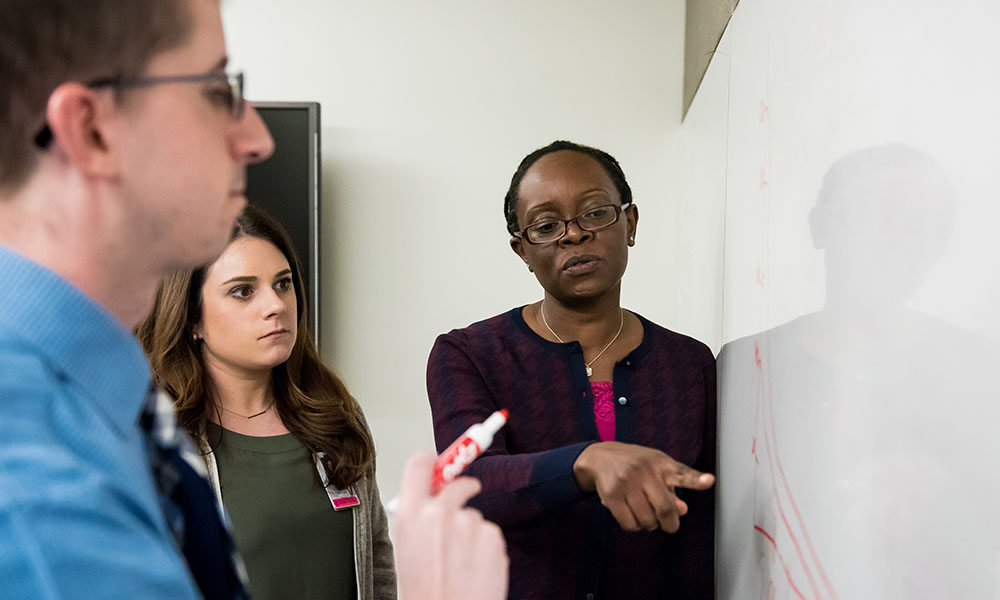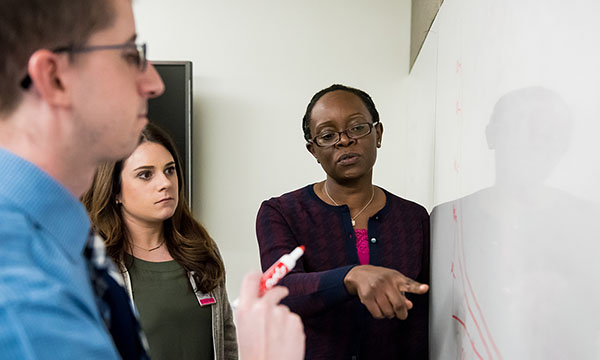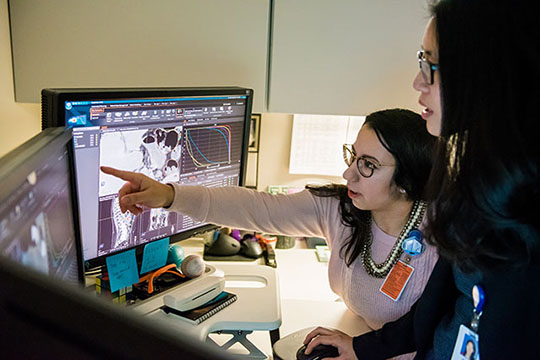Medical Dosimetry Training Program
In collaboration with Suffolk University, our expert Medical Dosimetrists and Physicists
teach graduate students the latest planning techniques, including proton therapy.


Weather AlertWe are monitoring the weather's impact on our services. If you are experiencing a medical emergency, call 911 or go to the nearest emergency department. Mass General Brigham's emergency departments remain open. For real-time updates and service changes, please check our Alerts page.View Alerts page
Contact Information
Jacky Nyamwanda, MS, CMD
Program Manager
jnyamwanda@suffolk.edu

The Master of Science in Medical Dosimetry at Suffolk University provides training in physics, biology, and physiology to prepare students for an entry-level dosimetry position. The program combines coursework and hands-on clinical experience at clinical affiliates under the supervision of board-certified medical dosimetrists and medical physicists. This includes a 3-week rotation in proton treatment planning here at Mass General.
For more information about the application process, please contact Suffolk University’s Office of Undergraduate Admissions at admission@suffolk.edu.
Mass General Brigham Cancer Institute has the only proton therapy site in all of New England, with two proton therapy centers.